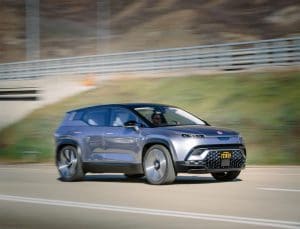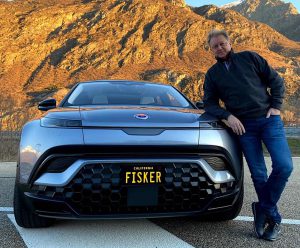
Henrik Fisker told TheDetroitBureau.com that the Ocean is just one of seven models the company plans to produce, starting in 2022.
With a planned IPO expected to raise $1 billion or more, Fisker Inc. is laying out plans to get the first of as many as seven all-electric vehicles in production and the first, CEO Henrik Fisker told TheDetroitBureau.com in an exclusive interview, will be migrating to a version of the same MEB platform underpinning Volkswagen’s own, aggressive EV program.
“It’s been a long run, a lot of ups-and-downs,” said the one-time lead designer for Aston Martin. But now, he said, the pieces are falling into place to begin moving fast.
The Fisker Ocean, which was unveiled at the Consumer Electronics Show in Las Vegas in January, will be just the first all-electric vehicle the Danish-born entrepreneur is working on. “We now have seven planned.”
(Fisker going public on NYSE, expected to raise $1 billion.)
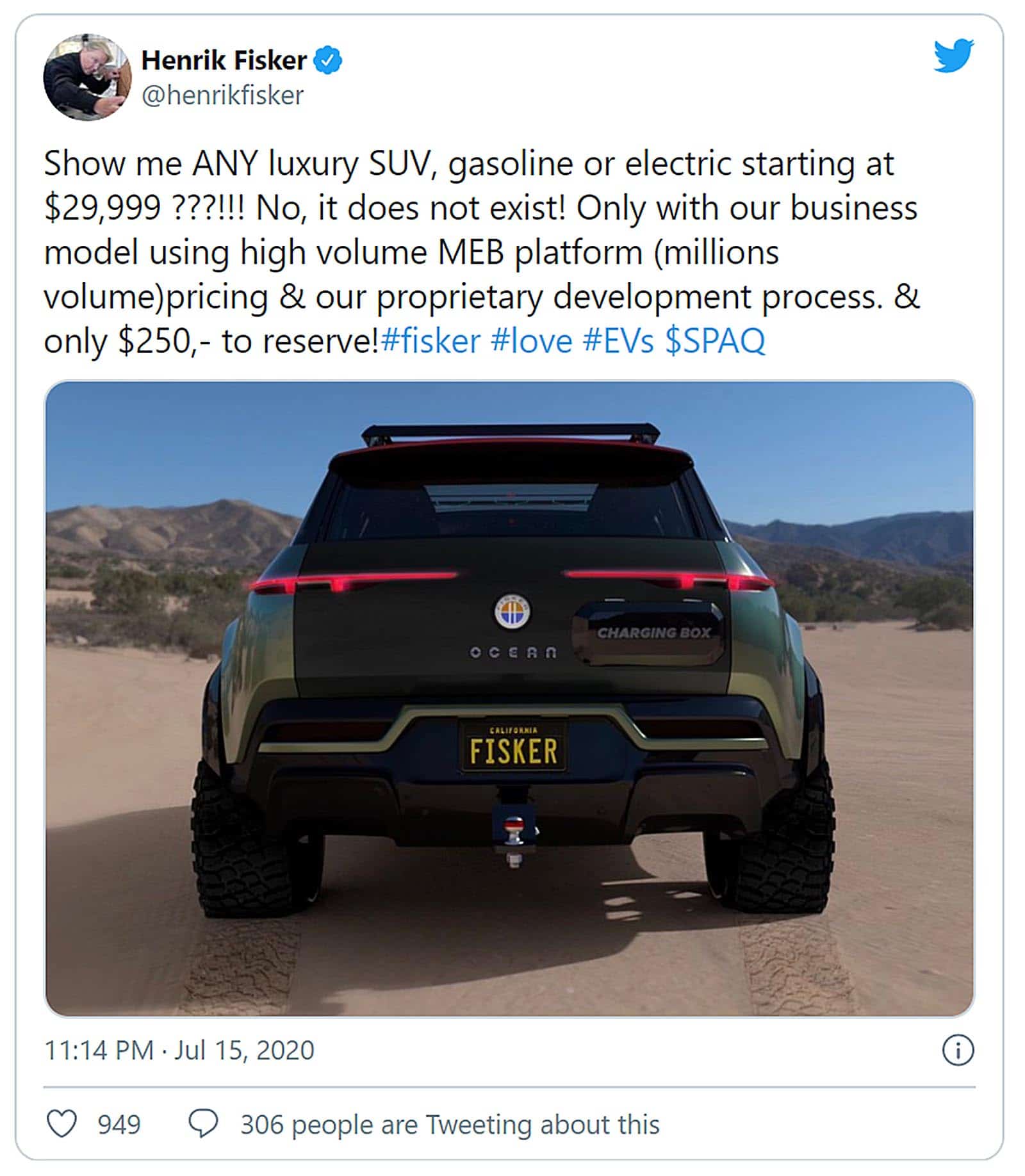
Fisker tweeted that the Ocean EV will start at $29,995. He invited those who are interested to put down a $250 deposit for a reservation.
The goal is to begin prototype production in late 2021, with real volume beginning in early 2022. If all goes according to plan, Fisker added, “We will have another vehicle, another model, in 2023,” though he declined to provide specific details on what’s in the works.
Fisker first made his name as a designer, crafting such well-regarded exotics as the Aston DB9, before setting off as an entrepreneur. His first attempt to create a car company, Fisker Automotive, resulted in a flawed plug-in hybrid, the Karma, which debuted about the same time as the Tesla Model S. But the project quickly came unplugged, going into bankruptcy in 2013.
Fisker re-emerged in 2016, revealing a concept, dubbed the eMotion, set to anchor what would be a new company focusing on all-electric products. During the past four years, however, Fisker’s plans have gone through some radical changes.
The eMotion sports sedan has become the Fisker Ocean SUV. And the original ultracapacitor energy storage sedan has, by now, shifted to conventional lithium-ion batteries which, Fisker anticipates, should yield 250 to 300 miles once the EPA does its testing.
One of the most significant shifts, however, is the move away from using a unique vehicle platform to borrowing one from Volkswagen. The MEB architecture will anchor dozens of products sold under the VW, Seat, Skoda and Audi badges. And it also will be used for one or more Ford BEVs as part of a joint venture between the two industry giants. Now, it will underpin the Ocean, as well, and possibly other planned Fisker products.
In an early Friday interview after he returning from his morning run, Fisker told TheDetroitBureau.com he was surprised that the story didn’t get out earlier because the Ocean EV revealed in Las Vegas was already based on the MEB platform.
That move runs counter to what other new entrants into the EV market are doing, from Tesla to Lucid to Rivian, all opting to develop their own skateboard style platforms. But, in a tweet, Henrik Fisker hinted at his logic noting that he can benefit from the economies of scale of “using MEB platform (millions volume) pricing.”
(Fisker going public through merger with investor-backed shell company.)
Because of that volume, the approach will cost “only a couple percent” more for the hardware than producing a unique Fisker architecture, the CEO explained, quickly emphasizing that there are other advantages.
While Fisker would not say where the Ocean will be assembled, he did say that it will not roll off the company’s own assembly line. That will further offset any cost penalties, he claimed. “I’d rather pay a little profit margin to someone else to manufacture our car … because we don’t have to raise a couple billion for our own plant.”
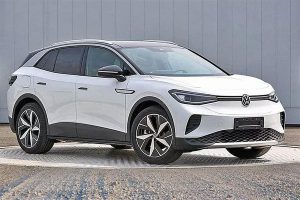
The Fisker Ocean will use the same MEB platform Volkswagen is using in the new ID.4. In fact, the vehicles are the same size.
Working out of an existing plant could mean a faster production ramp-up than with a new factory, Fisker suggested, adding that it also could help prevent the sort of ongoing quality and reliability problems that have long plagued Tesla which was recently named the lowest-quality brand on the annual J.D. Power Initial Quality Study.
Whether Fisker will turn to VW or another automaker or, perhaps, a contract assembler like Magna, the entrepreneur wouldn’t say. But he noted that “there is plenty of excess capacity in the industry,” and recent studies suggest there will be even more in the near-term, LMC Automotive, among others, forecasting global vehicle sales will tumble as much as 20 to 25% due to the coronavirus pandemic.
“I think there’s going to be a huge disruption in the industry as it goes electric and that will see a level of collaboration as you have never seen before,” added Fisker.
And he’s not alone. There have never been as many joint ventures and alliances between erstwhile competitors. Ford and VW actually have an array of tie-ups covering EVs, autonomous vehicles and other projects. Cat-and-dog rivals BMW and Mercedes-Benz have found numerous ways to work together, and the list goes on and on and on.
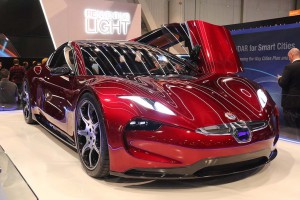
Lessons learned from the gull-winged Fisker EMotion led the entrepreneur to what appears to be a winning formula, the Ocean EV.
While Fisker made only passing mention to the disastrous collapse of his first EV company, it was clear he has tried to learn some critical lessons. “I decided to climb out of the automotive box and look back in to see what is needed to revolutionize the industry as it goes electric.”
(By the numbers: Fisker offers plenty of specs on the all-electric Ocean SUV.)
While that might sound pompous, Fisker has struck a resonant chord. As was announced this week, Fisker Inc. will merge with Spartan Energy Acquisition Corp., a shell company formed by Apollo Global Management Inc., and then move to an initial public offering on the New York Stock Exchange. The deal is expected to be completed during the fourth quarter of this year, and there has been speculation among analysts it could value the start-up at somewhere around $3 billion. All that, of course, will depend on a variety of factors, starting with the worsening pandemics impact on the economy.

